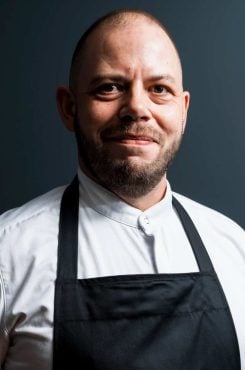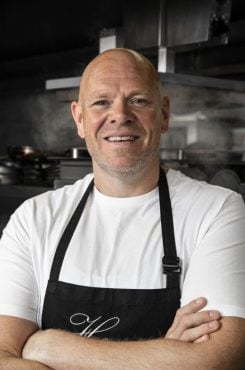Cook to be kind: how chefs are helping children in need
Published 6 May 2021
by Harriet Prior
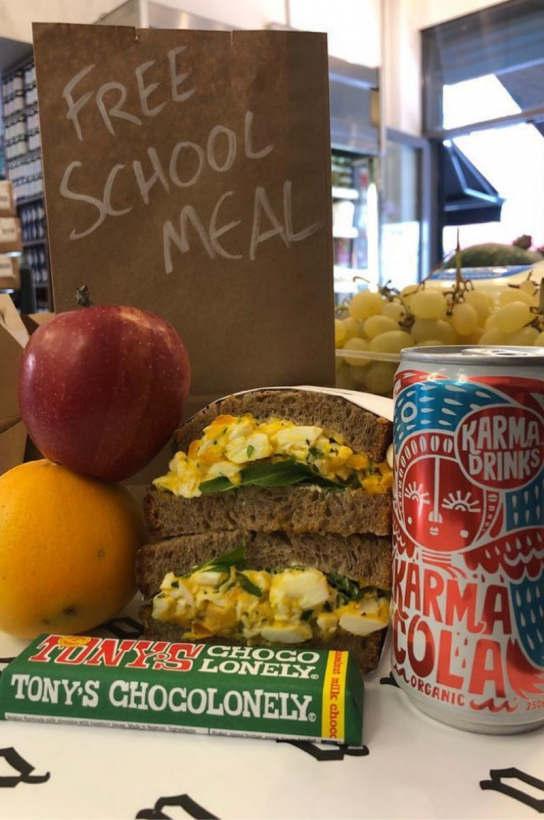
Photo credit: Quality Chop House
The issue of child food poverty is age old but, despite the efforts of many, it continues – and last year the beginning of the pandemic only heightened the need. CODE noticed that many chefs and restaurateurs were stepping up and serving up food to families struggling to cope. Harriet Prior spoke to some of those big-hearted people
Every single individual, business or industry we speak to has been impacted by the fallout of the past year – and hospitality has been hit particularly hard. A fifth of those working in restaurants, pubs and bars faced redundancy, and we were repeatedly warned that hospitality was on the brink of collapse. Yet, in the face of extreme adversity, the industry continued to do what it does best: help others. From chefs who provided thousands of meals for the NHS staff, to those who quietly offered a helping hand to vulnerable people, our lockdown heroes list last year showed just how wonderful, kind and generous the industry really is.
Last March, many aspects of normal life transformed overnight. Hospitality closed, working from home and online shopping became the norm, and parents grappled with the task of home-schooling their children. With schools shut for an indefinite period, many parents were concerned about their children missing out on necessary education and socialisation, yet footballer Marcus Rashford brought attention to another issue that long preceded the pandemic: food poverty. The 1.4 million children receiving free school meals in term time were suddenly left with nothing, and concerns were quickly raised about the standard of food parcels children were receiving. Then, 322 MPs voted against extending free school meals during holidays for hungry children (a decision that was later reversed).
Within weeks, a Twitter campaign began and both operators and chefs swung into action, offering free food from their sites. “No child should go hungry. It’s unbelievable it’s still happening in the UK today,” chef patron of 12:51 James Cochran shared with CODE. “When we heard that some families at schools local to 12:51 were struggling to put food on the table, we knew we had to get involved. It’s a way we can use our skills to give back to the community and help fight child food poverty.” Many others followed his lead, including Quality Chop House, Padella and Elizabeth Haigh’s Mei Mei.
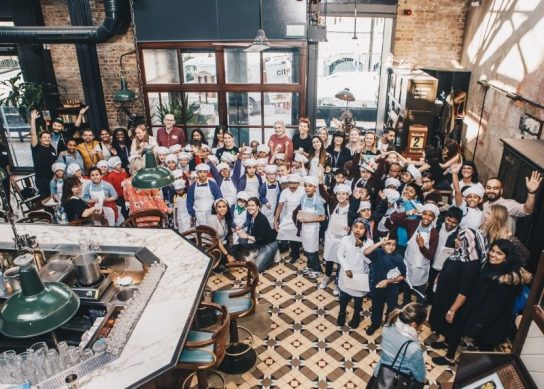
One operator recognised the enormity of the problem long before the pandemic. Dishoom started its Meal for a Meal pledge in 2015, donating a meal to a child that might otherwise go hungry. “Food poverty is a heart-breaking issue with significant consequences, especially for children,” says managing director Brian Trollip. “Arriving at school too hungry to concentrate and learn has a significant impact on attainment, and as a result the inequality gap widens. When the pandemic hit, we found ourselves not only scrambling to protect the livelihoods of our team and to secure the future of the business, but also to ensure the children receiving these meals continued to receive them.”
By launching its first ever at-home kits, Dishoom managed to keep the initiative going, and this year they reached the milestone of donating 10 million meals in partnership with the school-food charity Magic Breakfast and Akshaya Patra. “We hope that through an extraordinary collective effort, we’ll be able to make just a small difference.”
Another operator making an incredible effort to affect change is The Duke of Richmond, run by chef Tom Oldroyd and his partner Meryl Fernandes. Inspired by Marcus Rashford’s campaign, they began to offer free school meals during October half term. “I said look, I want to do something for Hackney and these kids. I thought I could personally pay for 60 meals a day, then I wrote a post on social media and it got shared around 7,000 times,” explains Fernandes. “We raised enough money to feed 1,200 kids that half term.” Recognising that the problem didn’t end with the school holiday, Fernandes decided to create a soup kitchen every Tuesday providing soup, bagels and chocolates. They’ve continued to get busier, with Oldroyd making 25 litres of soup each week.
Unsurprisingly, many others were quick to lend a helping hand where they could. “David from Chick ‘N’ Sours wanted to help, so went and delivered bags of shopping to mums who are vulnerable and shielding. We had another family who were shielding and wanted soup, but we couldn’t really deliver it because of our packaging limitations, so Tonkotsu in Peckham went and delivered them a meal that night,” Fernandes told us. While the restaurateur is pleased to be giving back to the community and making the pub a supportive hub, she admits that it’s been an emotional time. “People are struggling. It could be your next-door neighbour and you don’t even know. I see the reality of it every week, and I feel like it is getting worse.”
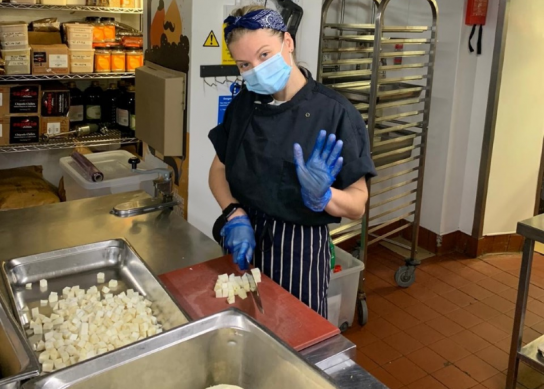
A charity at the front-end of the problem is Chefs in Schools, founded in 2018 with a mission to improve children’s health through improving food and food education in school. “We’re trying to create a ground up revolution and prove that it’s possible to create exciting, innovative school food that doesn’t cost the earth,” explains Chefs in School’s chief executive Naomi Duncan. “Only 1% of pack lunches meet a child’s nutritional needs. Up until now as a country, we tend to see school food as giving some calories to a child. For children with free school meals, it can be their only meal in a day. There are about 4.3 million children in this country living in poverty at the moment, and only a couple of million are entitled to free school meals, so there’s a big problem with a gap in eligibility.”
Reflecting on the challenges of the pandemic, Duncan shares that nothing was in place to support children with free school meals when schools shut, so Chefs in Schools immediately started to make free school parcels and get an initial programme set up. “We’ve had support from loads of restaurants – they’ve been the first to come forward and ask what they can do to help. Hakwsmoor, for example, lent us some of their team, donated to us and opened their kitchens to create food for free school meal parcels,” says Duncan. “There’s not another industry out there that is more ready and willing to help in good or bad circumstances.”
That’s certainly true, and the momentum doesn’t seem to be slowing down anytime soon. Last week, Tom Kerridge announced he was joining forces with footballer Marcus Rashford to launch the Full Time cooking campaign. The initiative aims to teach families to cook healthy meals on a budget, with 52 recipes created by Kerridge to be released one by one each week on an Instagram Live cookalong. Child food poverty is a problem much bigger than hospitality can solve alone, but it is a testament to the big hearts, deep pockets and sharp skills of our community that it continues to do its bit.
To read the latest articles from the latest edition of the CODE Quarterly magazine, click here




